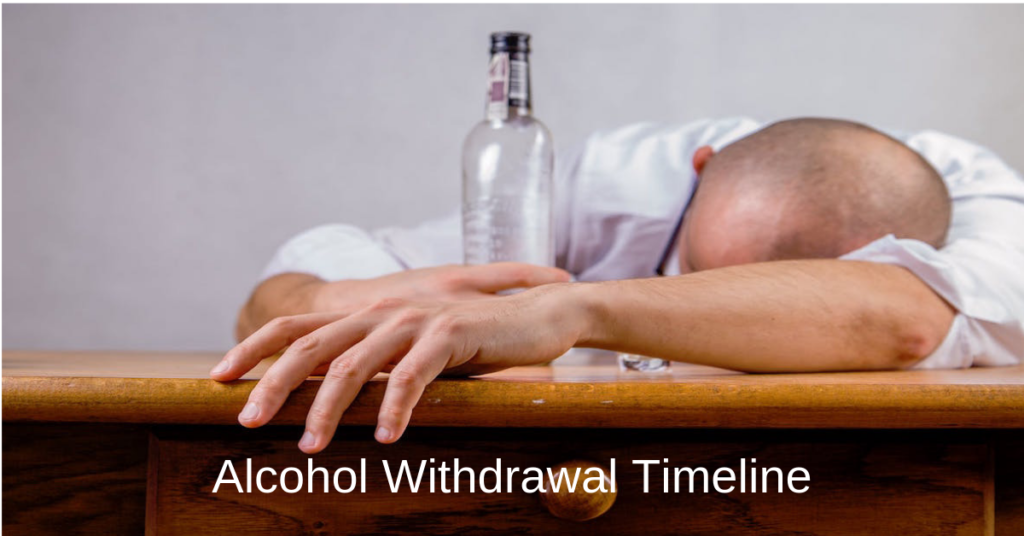What is Alcohol Use Disorder (AUD)
The National Institute on Alcohol Abuse & Alcoholism (NIAAA) characterizes AUD as a “chronic relapsing brain disease illustrated by compulsive alcohol use, a negative emotional state when not using, and loss of control over alcohol intake.” According to the National Survey on Drug Use and Health, an estimated 14.5 million people aged 12 or older in 2017 had an AUD.
The Diagnostic and Statistical Manual of Mental Disorders (DSM-5) created a list of eleven symptoms and depending on the number of symptoms experienced in a 12-month period, the more severe the AUD.
Alcohol Detox and Common Symptoms of Alcohol Withdrawal
After excessive periods of alcohol consumption, the brain and body have developed a dependency on the chemicals in alcohol. When one decides to quit drinking, the body will undergo alcohol detoxification. This is the natural process in which the body will attempt to get rid of all the waste and toxins that are present from alcohol consumption.
Restoring the body to a healthy state is a delicate process that can include uncomfortable side effects. For those who have been drinking heavily for a long time, it is safest to detox under medical supervision to help alleviate one's alcohol withdrawal symptoms and monitor their health. If not supervised, detoxing from alcohol can be a dangerous process.
The severity of withdrawal symptoms will depend on a variety of factors including how long someone has been abusing alcohol, how often they drink, the amount of alcohol they consume, whether other drugs are involved, and the individual’s physiological makeup such as gender, weight, age, and other physical conditions.
With that said, there are common alcohol withdrawal symptoms that most experience:
- Nausea
- Vomiting
- Insomnia
- Headache
- Sweating
- Nightmares
- Anxiety
The Alcohol Withdrawal Timeline: Mild to Severe Symptoms
The symptoms of alcohol withdrawal can be so severe that those who have the best of intentions of quitting often revert back to alcohol use simply to avoid the discomfort. If done at home without any supervision or medical attention, not only is there a good chance the process will be unsuccessful, the alcohol withdrawal process can even be deadly. However, since alcohol is legal to purchase and a socially acceptable drug, it’s common for people to take the withdrawal process less seriously than other drugs.
Understanding the seriousness of alcohol withdrawal, the symptoms, and the timeline can be helpful for those looking to get their lives back on track.
In general, there are three stages of the withdrawal timeline that includes both a time period as well as a list of symptoms.
Stage 1: 6-24 hours after the last drink. Symptoms during this stage are considered MILD.
- Headaches, nausea, vomiting, loss of appetite, alcohol craving, mood swings, anxiety, sweating, restlessness
Stage 2: 24-72 hours after the last drink. Symptoms during this stage are considered MODERATE.
- Irritability, increased blood pressure, mental confusion, hallucinations, withdrawal seizures, breathing difficulties
Stage 3: 72 hours - 7 days after the last drink. Symptoms during this stage are considered SEVERE.
- Excessive sweating, fever, rapid heartbeat, delirium tremens, vivid hallucinations, dry mouth, extreme tremors.
- Of note: Delirium tremens is a potentially fatal medical condition and can come on without warning. This is yet another critical reason why alcohol detox is best completed at an accredited detox facility with experienced addiction professionals.
Don’t Detox Alone
If there’s anything to take away from this, don’t attempt to detox from alcohol alone. Find an accredited treatment center, like Beach House. Work with trusted colleagues and friends who genuinely care about your well being. Talk to your doctor. Believe in yourself. Know that even though recovery is difficult, it’s possible. Remember that you’re not alone and that there is absolutely nothing to be ashamed of at any point. Millions of people deal with alcohol addiction. Don’t be one of them who doesn’t address the issue. Take control of your life.
Related Articles:
Alcohol Withdrawal Timeline Explained
What Helps Alcohol Withdrawal?
How Long Does Alcohol Withdrawal Take?







